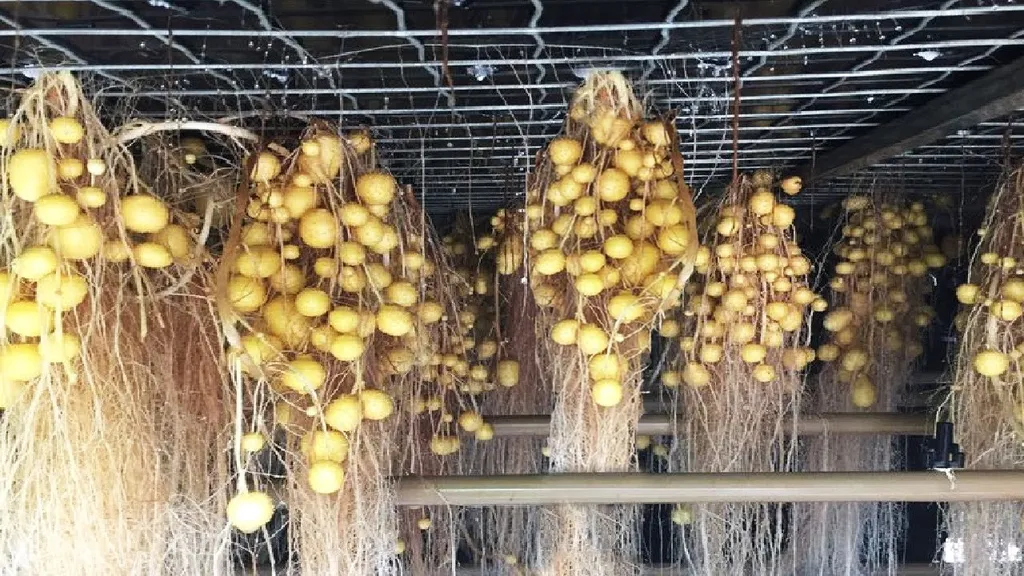In the heart of urban landscapes where space is a premium, a groundbreaking innovation is reshaping the way we think about agriculture. Researchers have developed an Internet of Things (IoT)-based aeroponic system that promises to revolutionize crop cultivation, particularly for potatoes, by optimizing key growth parameters and reducing water consumption. This system, detailed in a recent study published in ‘CHIPSET’, offers a glimpse into the future of urban farming, where technology and agriculture intersect to create sustainable solutions.
The aeroponic parameter control system, designed by a team led by Dzaki Zahran from Universitas Andalas, integrates real-time measurements of temperature, humidity, and pH levels to create an optimal growing environment. The system uses an ESP32 microcontroller as the main data processor, coupled with a DHT11 sensor for temperature and humidity, and a pH sensor for nutrient regulation. Automation is achieved through relays and control modules, all accessible via the Blynk app, allowing farmers to monitor and control the system remotely.
“The beauty of this system lies in its ability to maintain a stable growing environment with minimal human intervention,” says Dzaki Zahran, the lead author of the study. “By automating the control of temperature, humidity, and pH levels, we can significantly improve the efficiency and productivity of urban agriculture.”
The implications for the agriculture sector are profound. Traditional farming methods often struggle with space constraints and water scarcity, particularly in urban areas. The IoT-based aeroponic system addresses these challenges head-on, offering a sustainable solution that reduces water consumption and maximizes land use. This innovation could pave the way for vertical farming and other urban agriculture initiatives, making fresh produce more accessible in densely populated cities.
Moreover, the system’s ability to maintain parameter stability with an average error of less than 5% ensures consistent crop quality and yield. This level of precision is crucial for commercial agriculture, where fluctuations in environmental conditions can lead to significant losses. By providing real-time data and remote control capabilities, the system empowers farmers to make informed decisions and take immediate action when necessary.
The commercial impact of this research extends beyond urban farming. The integration of IoT technology in agriculture opens up new avenues for data-driven farming practices. Farmers can collect and analyze data on crop health, growth patterns, and environmental conditions to optimize their operations and increase productivity. This data-driven approach can lead to more efficient resource management, reduced costs, and higher profits.
Looking ahead, the success of this aeroponic system could inspire further innovations in the field of precision agriculture. As IoT technology continues to evolve, we can expect to see more sophisticated systems that integrate additional sensors and control mechanisms. These advancements could lead to fully automated farms that require minimal human intervention, further enhancing the efficiency and sustainability of agriculture.
In conclusion, the IoT-based aeroponic system developed by Dzaki Zahran and his team represents a significant step forward in the field of urban agriculture. By leveraging the power of IoT technology, this system offers a sustainable solution to the challenges of space constraints and water scarcity. As the agriculture sector continues to evolve, innovations like this will play a crucial role in shaping the future of farming, making it more efficient, productive, and environmentally friendly.

